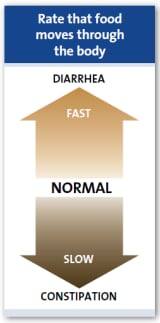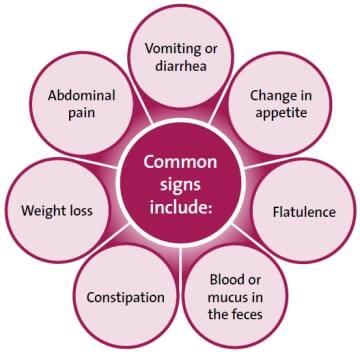
-
Find the right food for your pet
Take this quiz to see which food may be the best for your furry friend.
Find the right food for your pet
Take this quiz to see which food may be the best for your furry friend.
Featured products
 Adult Perfect Weight & Joint Support Chicken Recipe Dry Dog Food
Adult Perfect Weight & Joint Support Chicken Recipe Dry Dog FoodThis weight management and mobility support dog food was created with Hill’s unique understanding of the biology of overweight dogs.
Shop Now Adult 7+ Perfect Digestion Chicken, Whole Oats & Brown Rice Recipe Dog Food
Adult 7+ Perfect Digestion Chicken, Whole Oats & Brown Rice Recipe Dog FoodScience Diet's breakthrough nutrition supports ultimate digestive well-being & healthy microbiome for dogs age 7+
Shop Now Adult 7+ No Corn, Wheat, Soy Chicken & Brown Rice Dog Food
Adult 7+ No Corn, Wheat, Soy Chicken & Brown Rice Dog FoodSupports energy level and beautiful coat in mature dogs
Shop NowFeatured products
 Adult Perfect Digestion Chicken, Barley & Whole Oats Recipe Cat Food
Adult Perfect Digestion Chicken, Barley & Whole Oats Recipe Cat FoodScience Diet's breakthrough nutrition supports ultimate digestive well-being & healthy microbiome
Shop Now Perfect Weight Salmon & Vegetable Canned Cat Food
Perfect Weight Salmon & Vegetable Canned Cat FoodOver 70% of cats lost weight within 10 weeks when fed this nutrition
Shop Now Adult Savory Chicken Entrée Cat Food
Adult Savory Chicken Entrée Cat FoodPrecisely balanced nutrition with the delicious taste of savory minced chicken to help fuel the energy needs of cats during the prime of their life
Shop Now -
Dog
- Dog Tips & Articles
-
Health Category
- Weight
- Food & Environmental Sensitivities
- Urinary
- Digestive
- Joint
- Kidney
-
Life Stage
- Puppy Nutrition
- Adult Nutrition
- Senior Nutrition
Cat
- Cat Tips & Articles
-
Health Category
- Weight
- Skin & Food Sensitivities
- Urinary
- Digestive
- Kidney
-
Life Stage
- Kitten Nutrition
- Adult Nutrition
Featured articles
 Pet Food Storage Tips
Pet Food Storage TipsDiscover how and where to store your dry, as well as canned, dog and cat food. Learn how to find the "best before" dates on all Hill's pet food packaging.
Read More The Incredible Science Behind Your Pet's Microbiome
The Incredible Science Behind Your Pet's MicrobiomeLearn what a pet's microbiome is, how it contributes to your pet's gut & overall health, and why nutrition is important in maintaining healthy microbiomes.
Read More Water
WaterDiscover why water is the most important nutrient for your dog or cat to live a healthy life. Find out how much water your pet should consume each day.
Read More -
Find the right food for your pet
Find the right food for your pet


What are gastrointestinal and digestive disorders?
Any disorder that reduces the digestion or absorption of food, or alters its passage through the digestive tract, can be called a digestive disorder. Gastrointestinal (GI) disorders affect a cat's stomach and intestines, resulting in pain and other problems. Efficient digestion is essential for your cat to be able to build and repair tissues and obtain energy.
Digestive disorders in cats are quite common and most clear up within a few days. But some cats need long-term management because they have regular or permanent digestive problems. GI disorders can lead, to dehydration, acid-base and electrolyte imbalances and malnutrition so it is important to recognize the signs and consult with your veterinarian.

What are the types and causes of digestive disorders?
There are many different types of digestive disorders. The causes of digestive disorders range from eating something other than cat food, to food intolerance or sensitivities, infections, or lack of digestive enzymes. Some cat breeds such as Sphynx, Rex and Ragdoll, are more prone to particular digestive problems. Your veterinarian may carry out tests to determine the exact cause of your cat’s GI problem.
Commonly diagnosed conditions include:
Acute gastroenteritis: An inflamed digestive tract, usually short-term. Causes may include eating rancid or spoiled food, swallowing foreign objects, eating toxic plants, internal parasites, stress, food allergies and some disease conditions.
Colitis: More common in cats under the age of 5, colitis causes inflammation of the large intestine that results in frequent, painful passing of feces. If your cat is experiencing colitis, it may contain mucus and blood. Most frequently, colitis is caused by tumors or polyps, a change in food, allergies (including those to food), swallowed foreign objects and certain other diseases.
Diarrhea: Caused by infections, internal parasites, stress, a change in cat food, table scraps or rich snacks, eating spoiled food from the garbage and body organ dysfunction.
Constipation: Usually caused by dehydration, insufficient fiber intake, ingesting hair or other foreign objects, aging, tumors, trauma or fractures, spinal cord disease, large bowel nervous disorders, metabolic or endocrine disorders and debilitation, and lack of exercise.
Pancreatitis: An inflammation or infection of the pancreas (an elongated, tapered gland that is located behind the stomach). Origins are frequently unknown. Potential causes are decreased blood flow (due to dehydration, or other disease processes) infections, disease or trauma.
Irritable Bowel Syndrome: Commonly associated with chronic inflammation and discomfort of a cat’s bowels, but is typically not directly linked to gastrointestinal disease. Some suspected causes include food intolerances and the ability of the cat food to effectively pass through the gastrointestinal tract. Mental distress can also be a contributing factor for this condition.
Exocrine pancreatic insufficiency: This condition is characterized by weight loss, increased appetite and large amounts of soft feces. Chronic pancreatitis is the most common cause.


Tasty Tips
Small intestinal malabsorption: Inflammation of the small intestine impairs nutrient absorption and results in persistent diarrhea, weight loss and loss of appetite in your cat.
Does my cat have a gastrointestinal or digestive disorder?
The most common signs of digestive disorders in cats are soft stools or diarrhea. You may also notice some or all of the following signs in your cat.

- Vomiting
- Regurgitation
- Flatulence
- Weakness
- Diarrhea/constipation
Chronic GI disease can be a debilitating problem for many cats and requires testing and a thorough diagnosis from your veterinarian.
IMPORTANT: If your cat has diarrhea or is vomiting, she may become severely dehydrated. Consult your veterinarian if you notice any of these signs.
Treatment: The importance of nutrition
Your cat's food can have a significant impact on her GI tract health. A number of different nutritional approaches could be recommended for your cat depending on the specific diagnosis and the symptoms. The main goal is to alleviate your cat’s signs/symptoms of vomiting and/or diarrhea. Veterinarians recommend feeding cats with this condition a food that is highly digestible to help prevent irritation to her sensitive stomach and intestines. Also, high-soluble and insoluble fiber foods combined with moderate fat levels help support proper intestinal function. It is also important to monitor your cat’s hydration during the recovery phase to help ensure she has enough water and correct any fluid deficiencies.
Because several of these gastrointestinal conditions may be ongoing, long-term nutritional management of the disorder may be required. For accurate diagnosis and treatment options, always consult your veterinarian and ask them to recommend the best food for your cat’s digestive health.
Digestive Health Questions to Ask Your Veterinarian:
- Are there any foods I should avoid giving my cat to ensure a healthy digestive system?
- Ask how human food (such as chocolates or candy) can affect your cat’s health.
- Would you recommend a Hill’s® Prescription Diet® or Science Diet® cat food for my cat’s digestive health?
- Ask about special nutritional concerns for your cat
- How much / how often you should feed the recommended food to your cat
- Discuss treats you can feed your cat with the recommended food
- Would you recommend a Hill’s® Prescription Diet® or Science Diet® cat food for my cat’s digestive health?
- How quickly should I expect to see signs of improvement in my cat’s condition?
- Can you provide me with written instructions or a handout on digestive health?
- What is the best way (email/phone) to reach you or your hospital if I have questions?
- Ask if you need a follow-up appointment.
- Ask if a reminder email or notice will be sent.
- Would you recommend a Hill’s® Prescription Diet® or Science Diet® cat food for my cat’s digestive health?


One of our staff authors prepared this article for you
Related products

Precisely balanced nutrition with the delicious taste of savory minced chicken to help fuel the energy needs of cats during the prime of their life

Feline Adult Perfect Weight Variety Pack

Over 70% of cats lost weight within 10 weeks when fed this nutrition

Science Diet's breakthrough nutrition supports ultimate digestive well-being & healthy microbiome
Related articles

Discover which cat toys games your feline friend might like, and how they are great sources of exercise. Explore our library of articles to learn more.

Discover the benefits of Hill's line of kitten foods and how they provide complete and balance nutrition for growing kittens.

Discover how to identify cat sensitive skin and what you can do to help your cat thrive from head to paw.

How do you get a cat to lose weight? Learn all about cat foods for weight loss, including how to choose weight control cat food and exercise tips.

Put your cat on a diet without them knowing
Our low calorie formula helps you control your cat's weight. It's packed with high-quality protein for building lean muscles, and made with purposeful ingredients for a flavorful, nutritious meal. Clinically proven antioxidants, Vitamin C+E, help promote a healthy immune system.
Put your cat on a diet without them knowing
Our low calorie formula helps you control your cat's weight. It's packed with high-quality protein for building lean muscles, and made with purposeful ingredients for a flavorful, nutritious meal. Clinically proven antioxidants, Vitamin C+E, help promote a healthy immune system.

